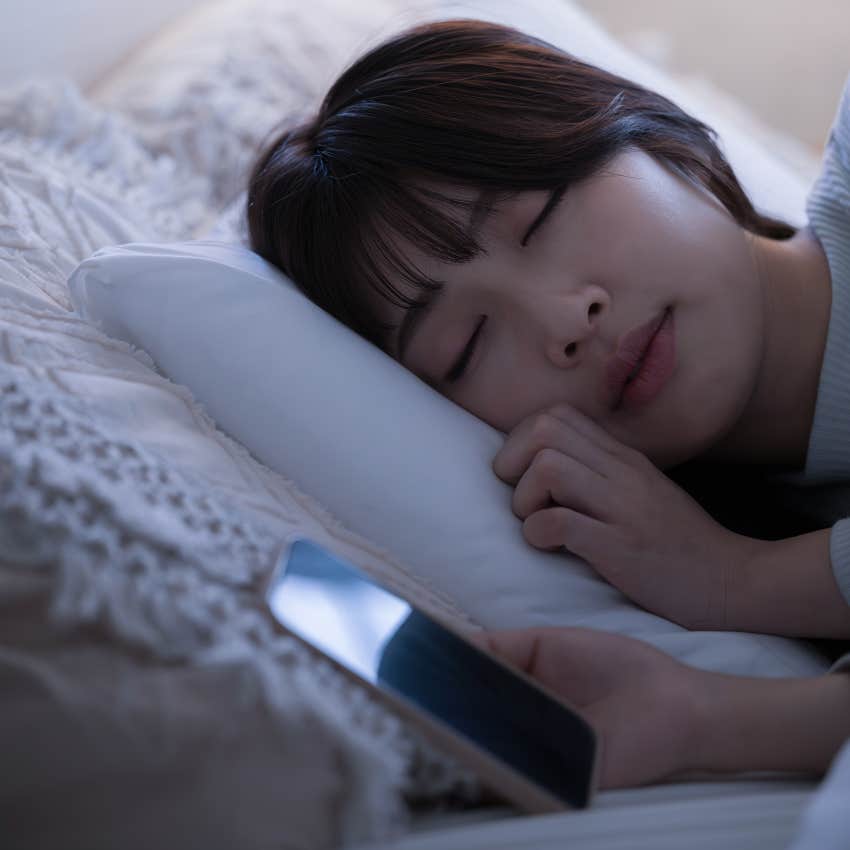Notification Nation: How We All Became Emotionally Unavailable, One Ping At A Time
Our devices don't just hijack our attention; they rewire how we show up for each other.
 M Pixo | Unsplash
M Pixo | Unsplash Here I was, in the middle of the tropical paradise, enjoying a hike soaked in humidity, when a hiker passed by with music blasting on his phone. I get it. He’s probably afraid of being alone, and the music keeps him company.
But it also means he is a jerk, killing the vibe for others and disrupting nature’s harmony. There are thousands of significant sounds coming from all directions, thanks to the wildlife.
We’re talking mating calls, birdsongs, and communication between species. I didn’t travel and hike for hours to listen to manufactured top 40 hits. Yet here we are.
In 1984, Freddie Mercury, alongside Brian May, John Deacon, and Roger Taylor, was in drag vacuuming the living room as he sang the following:
I want to break free, I want to break free
I want to break free from your lies
You’re so self-satisfied, I don’t need you
I’ve got to break free
God knows, God knows I want to break free — Queen, I Want to Break Free
Mercury was on to something. Who knew I’d be spewing the same words to my smartphone in 2025? I want to break free. Back in the wild, this wasn’t just an intrusion on my hike.
It reminded me of how people, whether they know it or not, use social media as a crutch for something deeper.
 Gorodenkoff / Shutterstock
Gorodenkoff / Shutterstock
And sometimes, that crutch isn’t just about music or entertainment. It’s about relationships, expectations, and control. When I talk to people who tell me they can’t live without their devices, my eye starts to twitch. It doesn’t take a Princeton study to convince me that doing work with and without your phone beside you shows dramatic focused improvement when the gadget is placed in another room.
I grew up with the television in a household where viewing times were restricted to the evenings (no more than an hour), and the rest of the day went by without us thinking we had an idiot box. And that’s exactly what it was and what it was treated as — an idiot box.
But I’ve also come to realize that our addiction, or rather digital dependency, to our gadgets isn’t an individual act of weakness; there’s a greater human aspect to it.
For example, I was once involved in a relationship where my partner was a gadget geek, and he needed to be in constant communication.
He was the kind who had every latest tech release, but beneath that obsession was something more profound: an anxious attachment style, which meant a phone wasn’t enough. I needed to be within reach, with internet access and my battery fully charged.
And when the phone rang, I had to answer the call, and a message left on read was unacceptable. Needless to say, it was a relationship that crippled me in more ways than one.
In relationship psychology, attachment styles describe how people connect based on emotional security, and for someone with an anxious attachment, technology can become more than a tool. It becomes an emotional tether.
I felt suffocated, but my gal pals convinced me it was in my head. “Oh, that’s wonderful, he likes to be in constant touch. It means he cares and loves you.”
Now, I’m no genius, but I can sense when something is amiss. I asked people around me, and what bothered me was their answers: nine out of ten would prefer it that way, to be in constant communication. The anomaly is me.
It didn’t help that in almost every other relationship I’ve had, or attempted to have, the common complaint was my lack of being in communication. I mean, heck, it’s not like I was going to war. I had things to do that required my focus, and I knew myself well enough that tech devices distract me.
What that means is I can make mistakes. And when you’re placed in leadership roles, which I often was, accountability is key. You want to make the best decisions based on clarity because people’s necks depend on them — on me. I also knew my brain operating system better than anyone else. My mother comes in a close second.
As a communications researcher, the problematic word is constant. How much is enough when it comes to constancy? Frequency paints a darker picture about who we are and what we are projecting.
Gradually, I felt suffocated, but it was one incident that became a turning point. It was even terrifying at the time. My phone battery had died. My boyfriend tried to contact me. I was engrossed with work. By the time I realized my phone had been silent longer than usual, I rummaged through my handbag and discovered the reason.
By the time I had it charged and switched on my iPhone, I received the most abusive shelling from someone who claims to love and trust me. Obviously, he didn’t, from the raging madness I received. It shook me to the core because I was treated as someone who had cheated on a partner. Listen, Pisceans are loyal to a fault; to be accused of being unfaithful is like summoning Hades from the Underworld and asking for a raging tempest of epic proportions for seven generations.
This is where the consensus is wrong.
A partner who needs to be in constant communication to the level of losing his mind when an iPhone battery dies signifies a mental health alert.
I didn’t want to be quick to call the guy abusive, but he was pressing my wrong buttons down that road.
It messed me up. I hated being wrongly accused. I was labeled as uncaring and thoughtless. I detested being held as a prisoner by a stupid thing such as a handphone. Eventually, I grew to loathe the idea that I needed to be monitored, have surveillance on me, and be held accountable for having a life and not being married to my smartphone.
It took me some time to drill into my head and accept that the problem wasn’t me — another Piscean weakness. I can be thick and slow to reach the punchline. And sadly, using technology to my advantage, he was the only guy I ever had to block on my devices. At least for a good year.
The experience took me down a different river bend when it came to relationships and understanding what was healthy and unhealthy in modern romance. I knew what I couldn’t and shouldn’t put up with. I debated with many friends about the rules of engagement.
Every message needed a prompt response. I disagreed. Sometimes you need time to process the information. And for me, sometimes I like reading the message repeatedly to enjoy it.
A phone call had to be answered, no matter the time or place. I disagreed. We once lived in an era where a call could be missed because we weren’t at home or simply didn’t hear the phone ring.
When the phone isn’t answered for reasons at the time, it doesn’t mean its importance is reduced. It means I will call you back when the time is right. If I can text you a message to say I am busy, I might as well pick up the phone. If I didn’t, it’s because I couldn’t.
Leaving a text unread was equivalent to neglect. I disagreed. After 7 pm, my brain is slow and thicker than mashed potatoes. There were times I forced myself to reply to text messages when I was en route to sleep, and I realized later that I had not only slept with the phone in hand, but I had also written rubbish to my friends.
 kapinon.stuio / Shutterstock
kapinon.stuio / Shutterstock
I once typed, saying I was going to poop and it was Tuesday. It made no sense; my friends thought it was funny, which is why a reply was not conducive. I think we need to stop seeing movies as a source of inspiration for how people function, as half the time they’re untrue. We’re idiots, grumpy, and irrational when we are exhausted.
To this day, I hate the idea that a phone became a symbol of reassurance, a lifeline tethering me to someone else’s fears. It shouldn’t. That’s the testament of an adult relationship that’s mature based on trust and respect. The pressure to remain constantly available was suffocating.
I gradually realized that my social media habits, my addiction to digital validation, the endless scrolling, and the need to check notifications weren’t solely my own.
They had been influenced and reinforced by the people closest to me. This isn’t just my story. It’s the reality for many who find their relationship with technology shaped by the emotional dynamics of their friendships, families, and romantic partners.
The way we use social media — our addiction to it, our struggle to let go — often isn’t an individual battle. It’s a deeply human one, molded by the people around us.
But of course, there’s also a major role we play on our parts. While my experience is personal, the data backs it up — science tells us that simply removing a phone doesn’t fix the problem. It’s not just about access; it’s about habits, expectations, and social reinforcement.
The Princeton study found that simply placing a phone in another room significantly improves focus and cognitive performance. The mere presence of a smartphone, even when not in use, creates a psychological pull that fragments attention.
This reinforces the idea that digital dependency isn’t just about personal willpower — it’s shaped by the environment we create and the social norms we follow. If everyone around us is glued to their screens, breaking free becomes exponentially harder. However, that’s half of the story.
A study published in Frontiers in Computer Science found that while placing a phone out of reach reduces direct smartphone usage, it doesn’t necessarily eliminate distraction — people often shift their attention to other screens, like laptops.
Don’t get me wrong. This essay is not preaching for a detox.
As a rule of thumb, I don’t like to block people on my devices. I only block spam callers that the phone advises me to block. To block friends and former flames means they still have a hold on me, so I don’t. At least, not anymore.
The world has far more nefarious matters we need to focus on. It’s more powerful, I feel, to ignore than to block someone. The former sends a message that I own my sense of control.
The power technology bestows on us is to block, delete, and remove notifications. But the real victory isn’t in the tech — it is in the mindset shift.
True freedom isn’t about cutting off technology — it’s about taking ownership of how we engage with it, without being dictated by someone else’s fears or society’s expectations.
I may still use my phone, but I use it on my terms — and that, more than anything, is liberation. As for romance and relationships, this is what I tell my gal pals, and they are free to agree to disagree: My phone no longer dictates my availability, and I refuse to be chained to a device just to prove my loyalty.
Trust isn’t measured in response time; love isn’t validated by a timestamp. And if society tells me constant connection is the only way to prove I care, then maybe it’s time to break free. In the words of Queen Mercury:
But life still goes on
I can’t get used to living without, living without
Living without you by my side
I don’t want to live alone, hey
God knows, got to make it on my own
So, baby, can’t you see I’ve got to break free?
Natasha MH is an author, editor, artist, and founder of the retail batik textile brand, Retno Batik. Currently, Natasha serves as a director on the board of governors for the Malaysian Social Research Institute, specializing in education.

